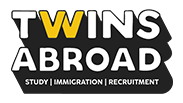How to Build a Global Resume While Studying Abroad
Studying abroad is more than just an academic endeavor; it’s a transformative journey that equips you with unique skills and experiences, making you a standout candidate in the global job market. Crafting a resume that effectively showcases this international exposure is crucial. Here’s an in-depth guide to help you build a compelling global resume during your time abroad.
1. Embrace the Value of Your International Experience
Your decision to study abroad demonstrates adaptability, cultural sensitivity, and a proactive approach to personal and professional growth. Reflect on your journey:
- Challenges Overcome: Navigating a new education system, language barriers, or cultural differences.
- Skills Acquired: Enhanced communication, problem-solving, and independence.
- Personal Growth: Increased self-confidence, maturity, and a broader worldview.
Articulating these experiences provides depth to your resume, showcasing qualities that employers highly value.
2. Strategically Position Your Study Abroad Experience on Your Resume
Effectively integrating your international experience into your resume involves placing it in sections where it adds the most value:
Education Section
List your study abroad program under your primary institution or as a separate entry:
Experience Section
If you engaged in internships, part-time jobs, or volunteer work abroad, detail these experiences.
Skills Section
Highlight language proficiencies, technical skills acquired, and soft skills like adaptability and problem-solving.
International Experience Section
For extensive global exposure, consider a dedicated section to consolidate your international engagements.
3. Showcase Transferable Skills Gained Abroad
Employers seek candidates with transferable skills. Your time abroad likely honed several:
- Adaptability: Adjusting to new environments and systems.
- Communication: Engaging with diverse groups and overcoming language barriers.
- Problem-Solving: Managing unforeseen challenges independently.
- Cultural Competence: Understanding and respecting different cultural norms.
- Independence: Handling daily life and responsibilities in a foreign setting.
Quantify these skills where possible.
4. Leverage International Internships and Volunteer Work
Engaging in internships or volunteer activities abroad not only enriches your experience but also adds substantial weight to your resume. Detail these roles with clear descriptions of your responsibilities, achievements, and the skills you developed.
5. Highlight Language Proficiency and Cross-Cultural Communication
Language skills are a significant asset. Clearly state your proficiency levels (e.g., fluent, conversational) and provide context on how you’ve used these skills in real-world scenarios. Additionally, emphasize your ability to communicate effectively across cultures, a skill that’s invaluable in diverse workplaces.
6. Utilize Power Verbs and Descriptive Language
Employ dynamic verbs to convey your experiences compellingly. Words like “collaborated,” “initiated,” “led,” “designed,” and “implemented” can make your resume more impactful.
7. Update Your Online Professional Profiles
Ensure your LinkedIn and other professional profiles reflect your international experiences. Include details about your study abroad program, projects undertaken, skills acquired, and any notable achievements. Engage with global networks and join groups related to your field of interest to expand your professional connections.
8. Tailor Your Resume for Global Opportunities
When applying for positions in different countries, be mindful of regional resume norms. Research and adapt your resume to align with the expectations of each job market.
Examples:
- USA: Typically, resumes are one page, and photos are not included.
- UK: CVs can be two pages, and including a personal statement is common.
- Germany: Including a professional photo and detailed educational background is standard.
9. Seek Feedback and Continuous Improvement
Regularly review and refine your resume. Seek feedback from mentors, career counselors, or professionals in your desired industry. Attend resume workshops and utilize online resources to stay updated on best practices.
10. Reflect Your Global Mindset in Cover Letters and Interviews
Your resume opens the door, but your cover letter and interviews seal the deal. Use these platforms to delve deeper into your international experiences, sharing anecdotes that showcase your adaptability, problem-solving abilities, and cultural insights. Demonstrating a global mindset can set you apart in a competitive job market.
11. Highlight Cross-Cultural Teamwork
Working effectively in diverse teams is a valuable skill. Provide examples of successful collaborations.
12. Showcase Problem-Solving in Diverse Settings
Demonstrate your ability to navigate and resolve challenges in unfamiliar environments.
13. Utilize Visual Elements for Global Impact
If you’re applying for roles in design, media, or communications, adding a visual layer to your resume can make a strong impression. Consider a clean and professional design layout that includes:
- A world map or flags representing countries where you’ve studied, interned, or volunteered
- Icons to highlight languages or skills
- Infographics to show progress in language learning or number of international projects handled
Tools like Canva or Adobe Express can help create stunning visuals without needing professional design skills. Just ensure the visuals don’t overwhelm the content—clarity and professionalism should always come first.
14. Participate in International Conferences and Workshops
Attending or speaking at international conferences is a major boost to your resume. It shows that you’ve gone beyond the classroom to engage with professionals and thought leaders on a global stage. Whether it’s a student conference on sustainability in Sweden or a global tech forum in Singapore, mention:
- The name and location of the event
- Your role (attendee, volunteer, presenter)
- Key outcomes or learning points
15. Collect Strong References and Recommendation Letters
While abroad, build relationships with professors, internship supervisors, or volunteer coordinators. These individuals can provide valuable recommendations reflecting your work ethic in an international context.
When possible, collect references while the experience is fresh. Having a diverse set of references—from different countries or institutions—reinforces your global exposure and reliability.
16. Create a Portfolio or Personal Website
A well-organized online portfolio can act as a live extension of your resume, especially for students in fields like writing, marketing, photography, or software development. It can include:
- Case studies of international projects
- Blogs about your study abroad journey
- Testimonials or recommendations
- Samples of your work
- A downloadable resume in PDF format
Platforms like WordPress, Wix, or even GitHub (for coders) can be great for this. Include the link in your resume and LinkedIn profile.
17. Tailor Your Resume to the Global Market
One size doesn’t fit all. When applying for jobs, tweak your resume according to the country or company you’re targeting. Research resume standards, job descriptions, and cultural nuances.
Also, match your resume’s tone to the company culture—formal for multinational corporations, and more creative for startups or NGOs.
Conclusion
Studying abroad is one of the most enriching experiences you can have—and your resume is the bridge that connects that journey to your dream job. By presenting your global exposure thoughtfully, you position yourself not just as a candidate, but as a future leader in a world where borders are increasingly blurred.
Whether you’re applying for a multinational internship, grad school, or your first job abroad, your resume should reflect the breadth of your experiences, the depth of your learning, and the confidence of someone who’s succeeded across cultures.
So, start early. Be intentional. And remember—your global resume isn’t just about where you studied, but how you grew.


Leave a Reply